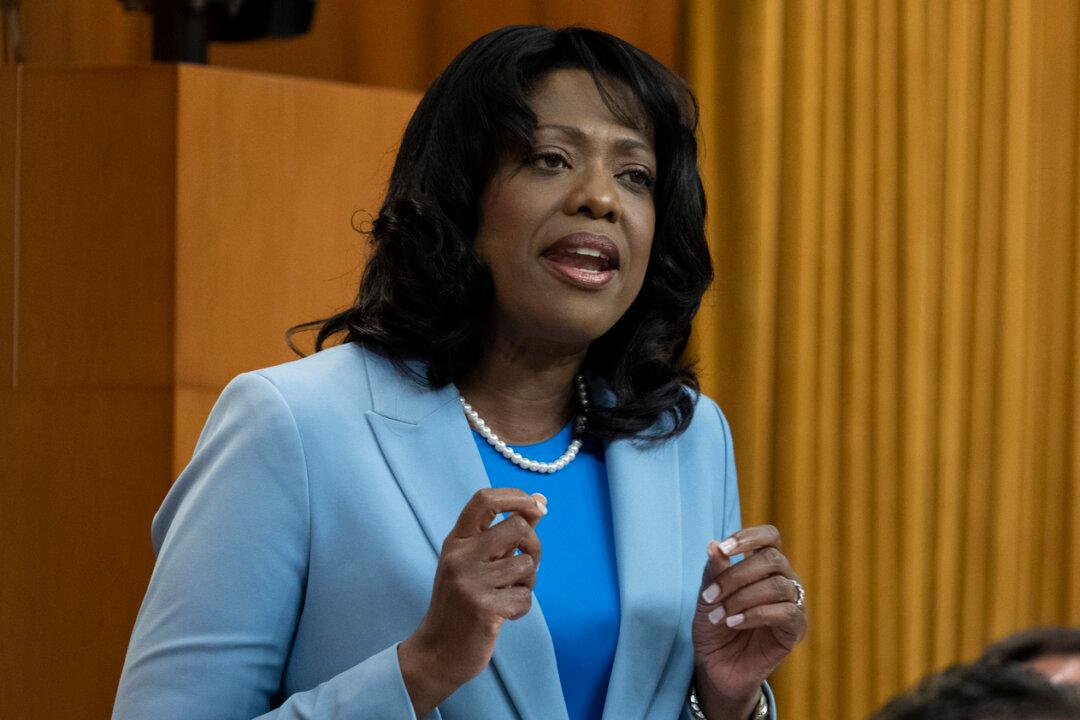Conservative MP Leslyn Lewis is criticizing the Liberal government for providing nearly half a million dollars to the World Economic Forum (WEF) to produce an environmental report promoting the carbon tax.
Prime Minister Justin Trudeau paid the WEF nearly $500,000 “of Canadian taxpayer money for the New Nature Economy Report justifying his carbon tax,” Ms. Lewis says in a March 18 social media post. “Global interest groups should not be trusted to care about the prosperity of Canadians.”





